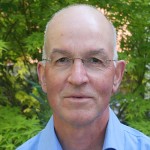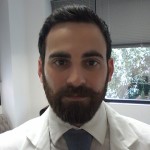Biocatalytic cascades involving two or more enzymes hold the promise to facilitate complex, multi-step chemical transformation in efficient and sustainable ways. In vivo cascades are assembled by metabolic engineering and have a well-established track-record from the bench to large-scale fermentation. In contrast, in vitro cascades have recently breached proof-of-concept in the test tube by successfully demonstrating their scalability for industrial production of high-value compounds, such as the anti-retroviral drug islatravir, and the low-calorie rare sugar tagatose.
In this free webinar, participants will gain insight into the strengths and weaknesses of each approach by comparing/contrasting past accomplishments and challenges, and explore future opportunities and design strategies for advanced chemical processes driven by biocatalytic reaction cascades. The panel of speakers consists of experts in the field of synthetic biology, each an architect and practitioner of biocatalytic cascades.
Speakers

Jeff Moore, Principal Scientist, Merck & Co
Jeff Moore obtained his Ph.D. in Chemical Engineering from the California Institute of Technology as Frances Arnold’s first Directed Evolution graduate student. His foundational work led to an evolved para-nitrobenzyl esterase and the Lonza Centenary Prize (1997). After graduating, he joined Merck & Co in Rahway, New Jersey as a member of the Biocatalysis Group which he led from 2002-2006. Jeff moved to the Process Chemistry department as Lead Scientist, in deference to the impact of biocatalysis on small molecule synthesis. He transitioned to the Protein Engineering group in 2018 responsible for discovering and evolving enzymes to carry out challenging chemical reactions for the development and commercial-scale manufacture of medicines. As a result of his work at Merck, Jeff has been awarded a U.S. Presidential Green Chemistry Award (2010), the BioCat Award (2012) and the Thomas Edison Inventorship Award (2014).

Nick Turner, Professor of Chemical Biology, University of Manchester
Nick Turner is Professor of Chemical Biology, Director of the Centre of Excellence in Biocatalysis (CoEBio3) and co-Director of SYNBIOCHEM. His research interests are in biocatalysis, directed evolution of enzymes and synthetic biology. He has published more than 350 papers/patents with an H-index of 66 and 16,000 citations. He is a member of several Scientific Advisory Boards and widely consults. He has received many awards for his research achievements and currently holds an ERC Advanced Grant (2017-2022). In May 2020, he was elected a Fellow of the Royal Society.

Dan Wichelecki, Co-Founder, Chief Scientific Officer, Bonumose LLC
Daniel Wichelecki is the co-founder and primary inventor of Bonumose LLC, where he began his non-academic pursuit in the Spring of 2016. His academic background is in the functional discovery of novel enzymes within carbohydrate metabolism at the University of Illinois at Urbana Champaign, which he has utilized to invent novel biomanufacturing pathways in the areas of alternative sweeteners and supplements.

Michelle Chang, Professor, Departments of Chemistry, Molecular and Cell Biology and Chemical and Biomolecular Engineering, UC Berkeley
Michelle is a professor at UC Berkeley in the Departments of Chemistry, Molecular and Cell Biology, and Chemical and Biomolecular Engineering. She received her Ph.D. from MIT, working with JoAnne Stubbe and Daniel Nocera, and her postdoctoral training with Jay Keasling at UC Berkeley. Her research group works at the interface of enzymology and synthetic biology, with a focus on studying biological fluorine chemistry, formation of mixed-valent nanomaterials by directional-sensing bacteria, and processes involved in developing synthetic biofuel and monomer pathways. She has received the Dreyfus New Faculty Award, TR35 Award, Beckman Young Investigator Award, NSF CAREER Award, Agilent Early Career Award, NIH New Innovator Award, DARPA Young Faculty Award, Camille Dreyfus Teacher-Scholar Award, 3M Young Faculty Award, Arthur Cope Scholar Award, and Pfizer Award.
Who Should Attend?
This webinar is appropriate for senior executives or managers working in product development, innovation, food and beverage, technology or R&D. Specific job titles include:
- Chemist
- Research Scientist
- Chief Technical Officer
- Chief Science Officer
- Enzymologist
- Biochemist
What You Will Learn
Participants will learn about:
- The design, development and scale-up of biocatalytic cascades
- Challenges encountered, and lessons learned from past examples
- Emerging trends and novel design tools for the future
Xtalks Partner
Codexis
Codexis is a leading protein engineering company that applies its proprietary CodeEvolver® technology to develop proteins for a variety of applications, including as biocatalysts for the commercial manufacture of pharmaceuticals, fine chemicals and industrial enzymes, and enzymes as biotherapeutics and for use in molecular diagnostics. Codexis’ proven technology enables improvements in protein performance, meeting customer needs for rapid, cost-effective and sustainable manufacturing in multiple commercial-scale implementations of biocatalytic processes. For more information, see www.codexis.com.
You Must Login To Register for this Free Webinar
Already have an account? LOGIN HERE. If you don’t have an account you need to create a free account.
Create Account

